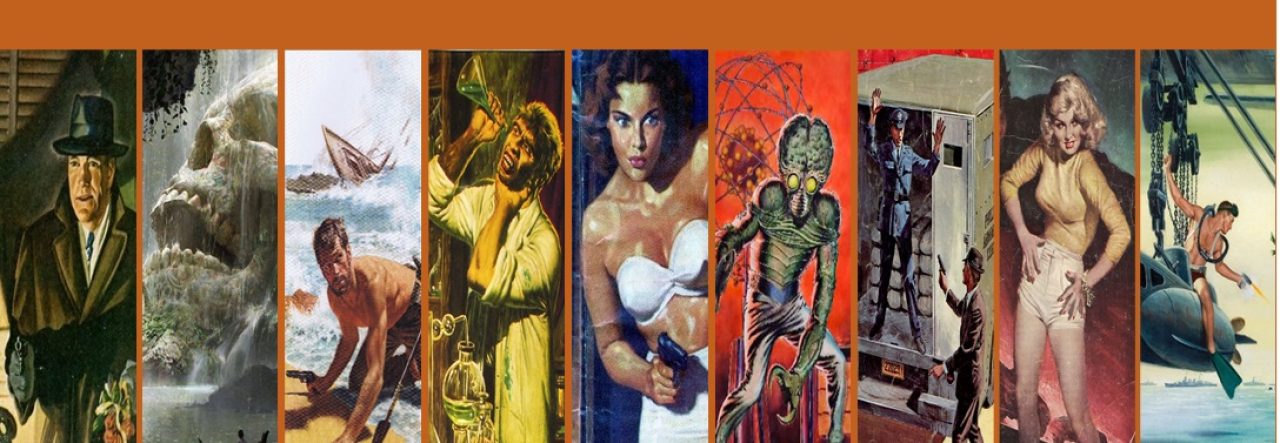The man in the high castle
lost paradise
beyond the wall
in the land that time forgot.
In our time,
the journal of the plague year
composed on the tongue
the story of our lives.
We have always lived in the castle.
Go down, Moses, shout at the devil
our residence on earth has been
a season in hell.
This world is taboo
but even so
children of the new world
search the sky
past the reefs of earth.
With the strength to dream
sleepers joining hands
knock upon silence
because it is becoming visible
and voyage to a beginning
Once out of nature and
approaching oblivion,
sleepers awake
to the stars.

Composed for dVerse Poets Pub Meeting the Bar: Finding Poems in Bookshelves
This week for Meeting the Bar, the prompt is book spine poetry. The rules are:
Go through your collection on books, and note the titles.
Sort them so the titles form a poem.
Take a photo of the books.
Write down the poem.
Although the titles provide a good backbone for the poem, we may put some flesh on the bones, so we have the option of writing a second version to which we add our own words to form a fuller poem.
Bjorn writes: As often with found poetry, you will likely be frustrated at first and most likely you will come to the conclusion that though the titles provide a good backbone for the poem, you prefer to put some flesh to the bones. So as an option I give you the possibility to write a second version where you add your own words to form a fuller poem.
I actually like the surreal quality of the agrammatical results, so I only added a couple small transition words and left the rest clunky.

Kudos for going with like a dozen titles. I did likewise with my poem, using all the books by Hemingway. I liked “children of the new world searched the sky past the reefs of earth.” what fun.
Read yours. Well done for not only using all the great man’s titles but evoking his spirit as well.
Nice lines/titles: “children of the new world
search the sky”
Thanks, some of the combos worked well for me.
This flows seamlessly, apocalypse with a hopeful ending. (K)
Thanks. It’s a fun prompt that makes tings happen outside your control. The lines started making me think of Neil Young’s “After the Goldrush.”
Nicely done!
Thank you!
It reads coherently and the 2nd stanza fits the now. You (or your poem) see(s) the writing on the walls (of the cosmos.)
Oh thank you. As I said above, it started to feel like the taking flight portion of Neil Young’s “After the Goldrush.” Which itself was inspired by Arthur Clarke’s Childhood’s End. Cool things happen when you use the language of giants.
Uh huh. I have After the Goldrush and have read Childhood’s End. Giants indeed!
Nicely done!
Thanks!
Many kudos for the weaving of these wise words.
Thank you
What an arrangement! Well done, it reads well. I ditto Kerf above.
Thanks so much!
Seems to fit our current times quite well. I am impressed by all of the title you used. Well done.
Thanks much.
I really like to wake to the stars.
Thanks!
very clever, great collection and you put it together well!
Welcome to WP and d’Verse 🙂
Thanks much!
you’re most welcome!